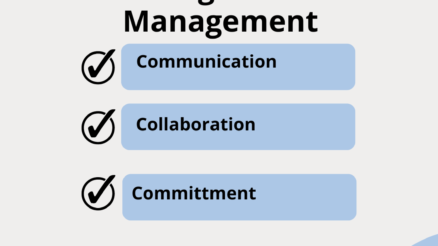Can you imagine going from lifting weights to running a state?
Arnold Schwarzenegger did just that.
He’s the Austrian guy who went from being a champion in bodybuilding to a big movie star.
People once said he was too bulky and his accent was too strong to be in movies. But Arnold didn’t listen. He worked hard, learned English better, and landed roles in big films like “Conan the Barbarian” and “The Terminator.”
But why stop at movies?
In 2003, he decided to run for Governor of California. And he won, not once, but twice.
As governor, he took on big issues like helping the environment and improving health care.
Arnold’s life shows us if you’re brave, work hard, and keep reinventing yourself, you can do all sorts of great things
This blog post is all about showing you the best way to reinvent yourself.
It’s perfect for anyone who wants to change their life but isn’t sure how to start. If you’re feeling stuck or just ready for something new, this post has tips to help you get moving.
Let’s get started
What is reinvention in the context of personal development?
In the context of personal development, “reinvention” is the process of making significant changes to your life in order to better align with your goals, values, or desired self-image.
It’s about taking a look at where you are now and deciding to make a conscious shift in your behavior, career, lifestyle, or mindset.
Reinvention can mean learning new skills to start a different career, changing habits to improve health, or altering your approach to relationships and personal interactions.
Essentially, it’s the act of transforming aspects of your life to become a version of yourself that you aspire to be.
Why people feel the need to reinvent themselves?
People often feel the need to reinvent themselves for a variety of reasons, each reflecting a point in their lives where they crave change or improvement.
Dissatisfaction with career
One common reason is dissatisfaction with their current career. Maybe the job they thought they’d love isn’t as fulfilling as they expected, or they’ve hit a ceiling and can’t advance any further. This can lead to a desire for a career change that promises more satisfaction, growth, and sometimes, a better income.
Life changing incidents
Another reason is significant life changes, such as going through a divorce or becoming an empty nester. These big life moments can leave people questioning who they are beyond the roles they’ve played for years. Reinvention becomes a way to discover and embrace a new identity.
Personal Growth
Then there’s personal growth. Some folks wake up and realize they’re not who they want to be. Maybe they’ve picked up habits that don’t serve them well, or they’ve neglected their passions. They want to reinvent themselves to be healthier, happier, or more in tune with their true interests.
Inspiration from others’ lives
Finally, inspiration can spark the need for reinvention. Seeing someone else achieve great things can light a fire under someone and motivate them to pursue their dreams. This might mean going back to school, picking up a new hobby, or simply living life with a new sense of purpose.
Why is reinvention of yourself important?
Reinventing yourself is important for several reasons, each contributing to personal growth and satisfaction:
Adapting to Change
In a world that is constantly evolving, the ability to reinvent oneself is crucial for staying relevant. Whether it’s adapting to new technologies, shifting career landscapes, or personal circumstances, reinventing yourself helps you keep pace with changes. This adaptability ensures you remain competitive in your career and flexible in your personal life, allowing you to navigate life’s challenges more effectively.
Personal Growth
Reinventing yourself is a pathway to personal growth. It pushes you out of your comfort zone, challenges you to learn new skills, and confronts your limitations. This process not only leads to acquiring new competencies but also builds resilience and a deeper understanding of oneself. Each act of reinvention is a step towards becoming a more rounded and capable individual.
Career Advancement
In your professional life, reinventing yourself can open doors to new opportunities that might have been inaccessible with your previous skill set or perspective. Whether it’s taking on a new role, entering a different industry, or starting a business, these changes can lead to significant advancements in your career, including higher positions, increased income, and more fulfilling work.
Relationships and Social Life
On a personal level, reinventing yourself can positively impact your relationships and social interactions. By changing aspects of your personality or habits, you might find it easier to connect with others or improve existing relationships. This might include becoming more empathetic, active in community activities, or simply diversifying your social circle, which can enrich your life and provide a supportive network.
Health and Well-being
Finally, reinventing yourself often involves adopting healthier habits, whether physical, emotional, or mental. This might mean a new fitness regimen, better eating habits, or mindfulness practices. These changes can lead to significant improvements in your physical health, reduce stress, and increase overall happiness and life satisfaction.
What is the best way of reinventing yourself? – 12 Steps Process
Changing yourself is tough but it’s a pretty awesome thing to do. You’re stepping up and making good changes in your life, and that’s something to be proud of. Plus, finding out new things about yourself can be just as cool as the changes you end up making.
If you’re looking to change but don’t know how to start, here are 12 steps that can help you get going.
1. Understanding your need to change
The first step in reinventing yourself is really understanding why you want to change. It’s like knowing the reason you get up from a comfy couch to get moving—it’s because you want something better, like maybe feeling healthier or finding a new hobby.
When you understand your need for change, it’s easier to make a plan and stick to it. It’s about asking yourself what’s missing in your life or what you’re not happy with, and then using those answers as your map for change.
It’s like knowing you’re hungry before you look for food. Once you know why you want to change, you can start taking steps towards a new you.
2. Self-Assessment
Self-assessment is like looking in a mirror but for your personality and habits, not just your face.
It’s about taking a step back and really looking at yourself — what you’re good at, what you could be better at, and how you think and act every day.
You might ask yourself questions like, “Am I happy with my daily routine?” or “What skills do I wish I had?”
It’s like making a list of things you want to upgrade in your life, just like you’d pick out what you want to improve in your home. This step helps you figure out where you want to make changes so you can start working on them.
3. Goal Setting
Setting goals is about imagining your future self and then planning realistically to become that person.
Think about where you want to be in a few years—what kind of job you want, how you want to feel, or even how you spend your free time.
Once you have a clear picture, start setting specific, achievable goals. Break these big dreams into smaller steps that you can tackle over time.
For example, if you want to be healthier, start by setting a goal to eat more vegetables every day or go for a walk three times a week.
This way, you make your vision manageable and keep yourself on track to eventually get there.
4. Educational Path
Education plays a crucial role in reinventing yourself because it opens up new doors and equips you with the skills you need for a new path.
Whether you’re looking to shift careers or just enhance your current job skills, taking courses or getting new qualifications can be transformative.
For instance, if you’re aiming for a tech job but come from a different background, enrolling in coding bootcamps or IT certification courses can bridge the gap.
Education doesn’t just mean formal degrees—it can also involve workshops, online tutorials, or even books that expand your knowledge and skills in areas you’re passionate about.
This step is about choosing the right educational tools to help build the version of yourself you envision.
5. Skill Development
Skill development is a vital step in reinventing yourself, as it involves identifying and then building the specific abilities you need for the change you want.
First, pinpoint the skills that are crucial for your new direction. For example, if you’re aiming to move into digital marketing, skills like SEO, content writing, and data analysis might be essential.
Once you know what you need, look for ways to develop these skills.
There are plenty of resources available, such as online courses on platforms like Coursera or Udemy, local workshops, or even community college classes.
Engaging with these educational resources not only builds your skills but also demonstrates your commitment to your new path, making you better prepared and more competitive.
6. Networking
Building a new network is crucial when you’re reinventing yourself because it connects you with people who can support, guide, and provide opportunities along your new path.
Networking allows you to meet mentors, peers, and industry professionals who can offer valuable advice, feedback, and possibly open doors to job offers or collaborations.
Start by attending industry meetings, seminars, and online forums related to your new field. Engaging on professional social media platforms like LinkedIn can also help you connect with key individuals.
Remember, networking is not just about receiving; it’s also about contributing to others’ success, which can establish you as a credible and valuable member of your new community.
7. Taking Small Steps
Taking small, manageable steps towards big goals is essential for sustainable change.
This approach allows you to focus on immediate, achievable tasks that gradually lead you toward your larger objectives, reducing the overwhelm that can come with major ambitions.
For instance, if your goal is to run a marathon, you might start by jogging short distances and gradually increase your mileage over time.
This method not only builds momentum but also provides a sense of accomplishment with each small victory, keeping you motivated.
Additionally, breaking goals into smaller components helps you troubleshoot and adjust your strategies more effectively, ensuring a smoother journey towards your ultimate target.
8. Consistency and Routine
Establishing routines that support new changes is key to making them stick. Consistent routines turn challenging tasks into regular habits, making it easier to integrate them into your daily life.
For instance, if you aim to improve your health, setting a routine for exercise at the same time each day can help it become a normal part of your day, just like brushing your teeth.
The same goes for any skill you’re trying to develop; dedicating a regular time slot for practice can dramatically improve your proficiency over time. Routines provide structure and reduce the mental effort needed to get started, which is especially helpful when motivation wanes.
By making your new activities a regular part of your day, you’ll find it becomes much easier to maintain them and progress toward your goals.
9. Dealing with Setback
Dealing with setbacks is a critical part of any process of change, as obstacles are inevitable. The key is to view these challenges as learning opportunities rather than failures.
First, maintain a flexible mindset that allows you to adapt your strategies when things don’t go as planned.
It’s also helpful to set up a support system, such as friends, family, or mentors, who can provide encouragement and advice when you encounter hurdles.
Additionally, keep track of your progress and celebrate small successes along the way to stay motivated. When faced with a setback, take a step back, analyze what went wrong, and adjust your plan accordingly.
Remember, perseverance is crucial, and every obstacle is a step closer to mastering your new path.
10. Seek Support
Asking for support is a vital step when you’re making changes in your life.
Don’t hesitate to reach out to friends, family members, or co-workers you trust. More often than not, these people can offer valuable advice or encouragement based on their own experiences.
They might have faced similar challenges or have insights that you hadn’t considered. Sharing your goals and struggles not only opens up resources and support but also strengthens your relationships and creates a network of accountability.
This support can make the journey less daunting and more manageable, as having someone to talk to can be incredibly reassuring and motivating.
11. Self Reflection
Self-reflection is a crucial component of reinventing yourself.
By engaging in self-care practices like journaling and mindful breathing, you create opportunities to explore your thoughts, feelings, and behaviors deeply.
This introspection helps you understand the reasons behind your current life circumstances and clarifies what changes are necessary for moving forward.
Journaling can capture insights and track progress, while mindful breathing helps calm the mind, making it easier to focus on internal dialogue. Through regular self-reflection, you gain valuable self-awareness that guides your decisions and actions toward the personal transformation you seek.
12. Celebrate Small Wins
Celebrating small wins and successes is essential when you’re undergoing significant changes in your life. Each milestone, no matter how minor it may seem, deserves recognition.
Taking the time to acknowledge and celebrate these achievements boosts your confidence and reinforces your sense of self-worth.
This practice keeps you motivated and maintains a positive momentum throughout your journey. It also helps you stay committed to your goals by providing tangible proof of your progress.
Whether it’s treating yourself to something special, sharing your accomplishments with others, or simply taking a moment to reflect on what you’ve achieved, recognizing your successes cultivates a mindset of appreciation and continuous improvement.
Final Words
In conclusion, discovering the best way to reinvent yourself can be a game-changer for your personal and professional life. It’s all about making positive changes that help you adapt, grow, and live a more fulfilling life. Whether it’s learning new skills, improving relationships, advancing in your career, or boosting your health, each step you take towards reinvention can lead to exciting new opportunities and a happier, more balanced you. So embrace the journey of self-discovery and transformation—it’s one of the best investments you can make in yourself.



